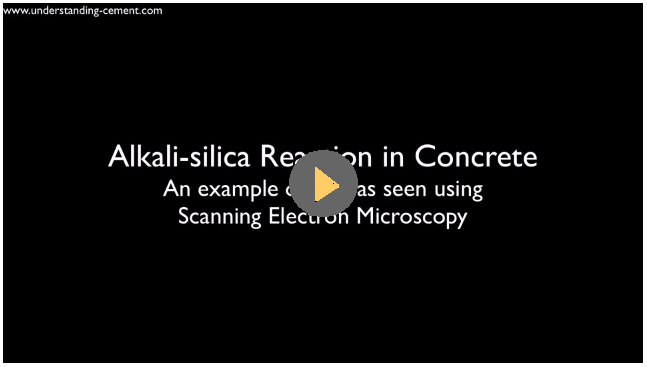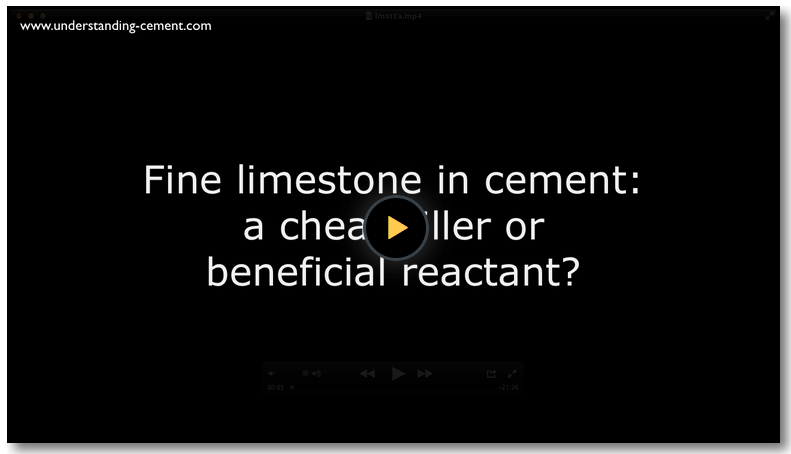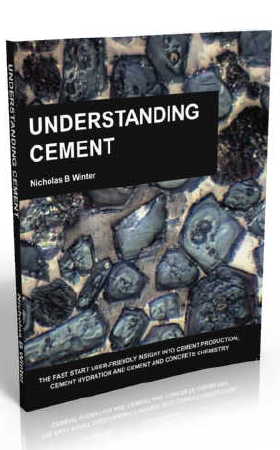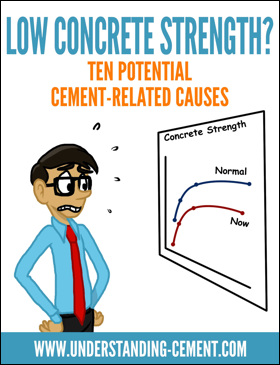Understanding Cement Article Directory
The Table below lists 31 articles - just click on the link to view your chosen article.
The articles can also be accessed using the navigation bar above, but you may find this Table to be more convenient.
Subject |
Article title/link
|
Description |
|
Cement History |
A brief introduction to the history of Portland cement |
|
Basic Definitions |
Defines some components of cement and concrete, eg: "clinker", "aggregate" |
|
Some simple but essential bits of basic chemistry applicable to cement |
|
Production |
Raw materials used in cement production |
|
Describes the basic components of a cement plant |
|
Description of a rotary kiln, including wet and dry processes |
|
Brief introduction to refractories in the cement kiln |
|
Describes the cement ball mill |
|
Clinker |
Illustrated description of a clinker nodule |
|
Describes cement chemists' quirky but useful notation |
|
Describes the reactions in the kiln as the raw meal is converted to clinker |
|
Describes Lime Saturation Factor, Silica Ratio (Silica Modulus) and Alumina Ratio (Alumina Modulus) |
|
Factors influencing how easily the raw meal may be combined to produce clinker |
|
Describes the Bogue calculation, widely used to estimate the proportions of clinker minerals |
|
Milling and gypsum addition |
|
Discusses variations in cement performance |
|
Cement hydration |
Describes the process of cement hydration and the hydration products |
|
Discusses factors affecting concrete (and mortar) strength |
|
Deleterious processes in concrete |
Outlines the principal reactions that can adversely affect concrete (most are discussed in more detail in separate articles, see below) |
|
Illustrated discussion of the process of asr in concrete |
|
Effects of sulfate attack, causes, conventional sulfate attack, delayed ettringite formation |
|
Discusses the process of carbonation and how to test for it |
|
Aircrete |
Describes the production of autoclaved aerated concrete |
|
Cement analysis |
Introduction to cement analysis during the manufacturing process |
|
Cement microscopy |
Brief introduction to how microscopy of clinker is used to determine factors such as raw meal fineness and kiln conditions |
|
BLOG ARTICLES |
Discusses approaches to assessing the water-cement ratio of hardened concrete, with some reference images for you to have a go yourself |
|
Mortar porosity measurement using backscattered electron imaging |
|
Does cement react with glass? This article shows the answer... |
|
Sea urchin spines are made of calcium carbonate and are stronger than they should be. A group from the University of Konstanz in Germany has found out why, and is researching whether this could have applications to concrete |
|
Article on one of the earliest poured concrete structures built in the industrial revolution |
|
Describes the effect on paste microstructure of poor concrete curing |






